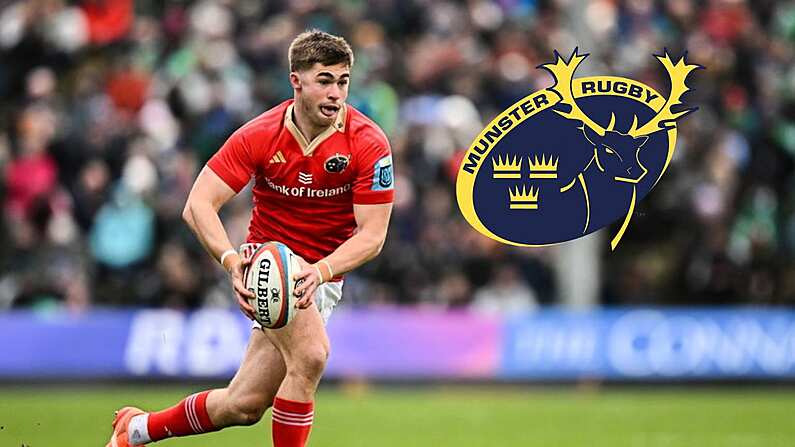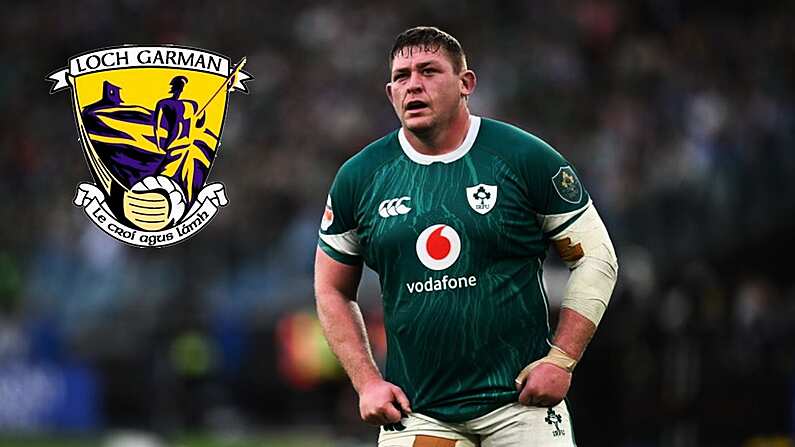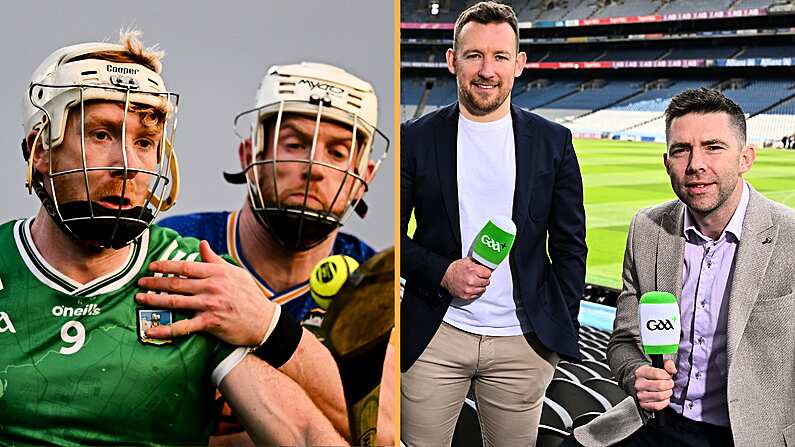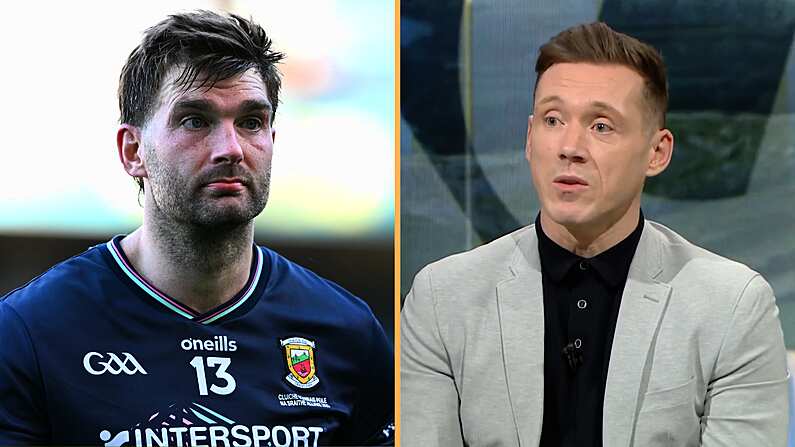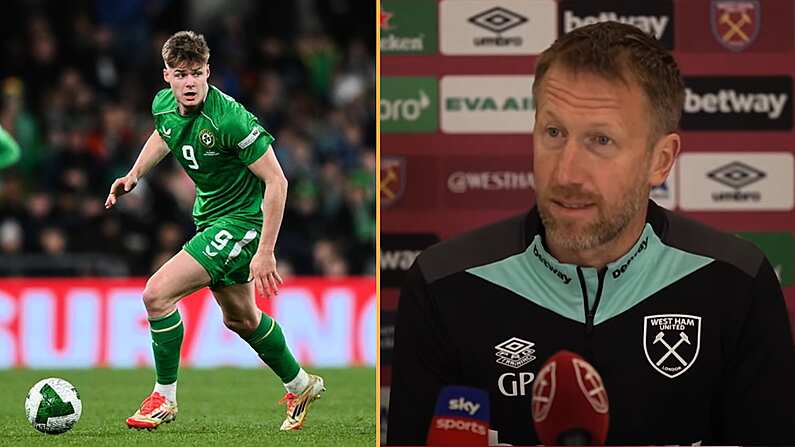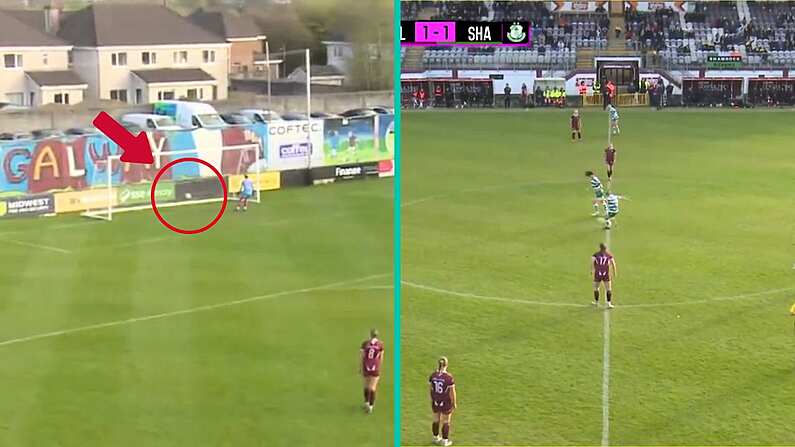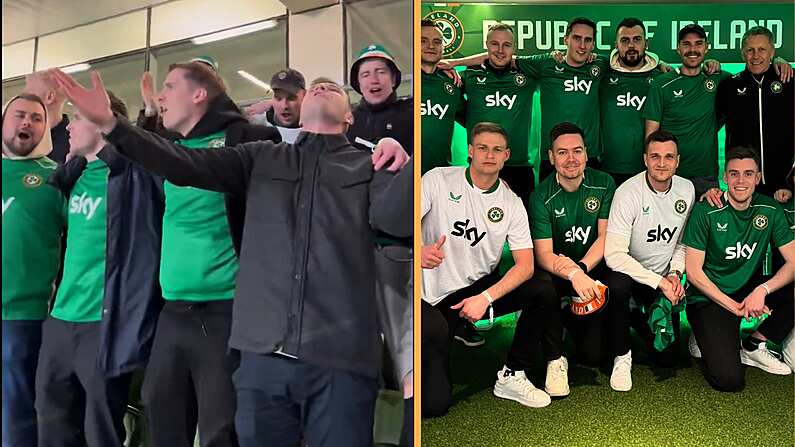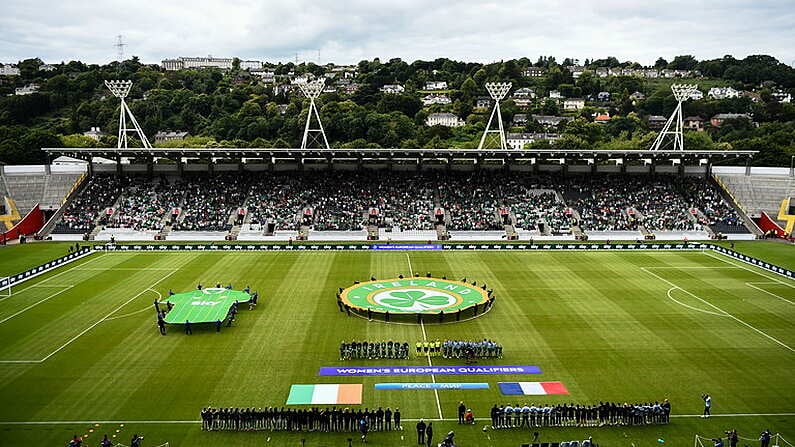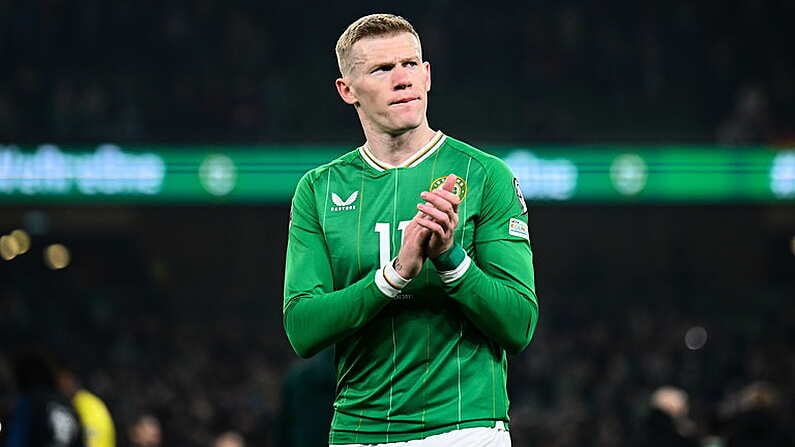In the twenty-fourth minute of the Republic of Ireland's opening Euro 2016 game against Sweden, with Sweden passing the ball around their defence, a faint chant can be heard coming from the TV screen. The sound builds to a crescendo, gradually, until eventually your eyes are drawn beyond the action on the pitch to the stands, where Irish fans are rising to their feet in tribute. But they are not standing up for the 'Boys in Green', as is their wont.
No, the Republic of Ireland soccer fans rose to their feet last night in tribute to the 'Ulstermen'. In particular, they rose for one young Ulsterman Darren Rodgers, who came to France to follow his beloved Northern Ireland and, tragically, died after falling over a railing in Nice just after Michael O'Neill's side's loss to Poland on Sunday.
So far the tournament has featured almost as many off-field headlines as on, due ironically to the actions of football fans rather than any suspicions regarding a terrorist threat. The conduct of English and Russian fans that marred the teams' dramatic Group B encounter in Marseille (and has resulted in countless arrests) has stretched the resources of an already strained French police force.
England and Russian football fans clash in violent scenes https://t.co/k5PnIKDVE3 pic.twitter.com/NDmXgqKPID
— Telegraph Breaking News (@TelegraphNews) June 11, 2016
And so the actions of the Irish faithful provided a reminder of what sport can be about, what is should be about, and what being a fan should be about. And anyone who knows the island of Ireland's recent political history will appreciate the significance of the Irish fans' actions last night. A glance at the BBC Newsline Facebook page, which shared a video of the Irish fans singing 'Stand Up For The Ulstermen', gives an insight into the positive reaction from people both north and south of the border. People who know what went before, who understand the complex relationship between the football teams that represent both sides.
In 1993, Jack Charlton's Republic of Ireland side travelled to Windsor Park in Belfast and played a World Cup qualifier match against Northern Ireland in an atmosphere that became so notorious for its viciousness and hostility towards the presence of Irish or Catholic people that it prompted a famous play, 'A Night In November'. Sectarian songs filled the night air, monkey chants ringing in the ears of the Republic's Paul McGrath and Terry Phelan. When Alan McLoughlin scored for the away side, an almost deathly hush descended on the ground, broken only by the muffled celebrations of Charlton's men. No Irish fan dared celebrate. The brief expression of joy wasn't worth the risk.
Since then, the Good Friday Agreement and the years that followed have eased relations between the north and south of the island and their respective football teams, a calm punctuated occasionally by vitriol directed towards players such as James McClean and Shane Duffy who swapped underage careers with Northern Ireland to pull on the light green of the Republic. Catholics are more accepted at Windsor Park now than they were in the recent past: the Catholic former Celtic captain and Northern Ireland midfielder Neil Lennon's forced retirement from international duty due to death threats from loyalists was only fourteen years ago.
In the last few years, players such as Niall McGinn and Paddy McCourt have been serenaded by fans in Belfast even when playing their club football at Celtic. Current team manager Michael O'Neill was born a Catholic and played Gaelic football at underage level for Antrim. It is becoming less and less the case that Northern Ireland players and Republic of Ireland players represent totally separate ideologies and backgrounds.
I grew up five minutes from Windsor Park as a Catholic, GAA-mad kid in the early 2000s. I would never have dreamt of stepping foot inside Windsor Park due to the connotations for people of my background. But this Northern Ireland team is changing that in tandem with the changing environment and ideology within the society as a whole. There is an openness and an acceptance of people that simply wasn't there before. Darren Rodgers was part of this new generation of Northern Ireland fans. This new generation that accepts someone because they support a team, not because they are from a certain background.
The Republic of Ireland fans echoed this sentiment with their display on Monday. They showed what a major tournament such as the Euros should be about: people from different backgrounds, different beliefs and political ideologies, coming together as football fans in a celebration of sport and their love for it. When the Boys in Green stood and proudly raised their voices in support of their northern counterparts, they illustrated in the purest way the power that football can have. For they recognised that, just like them, Darren Rodgers was a young man who travelled to France to watch a game of football, to sing and to live.
Major tournaments always have moments that stand out in years to come. It could be a piece of skill that lights up a tournament, a controversial decision, or a photograph that captures something forever. For me, the 24th minute of the Republic of Ireland v Sweden will stand out as the moment that the Republic of Ireland fans recognised the life of a fellow football fan, and in doing so transcended age-old boundaries.
A fellow football fan. Because that is exactly what he was.


